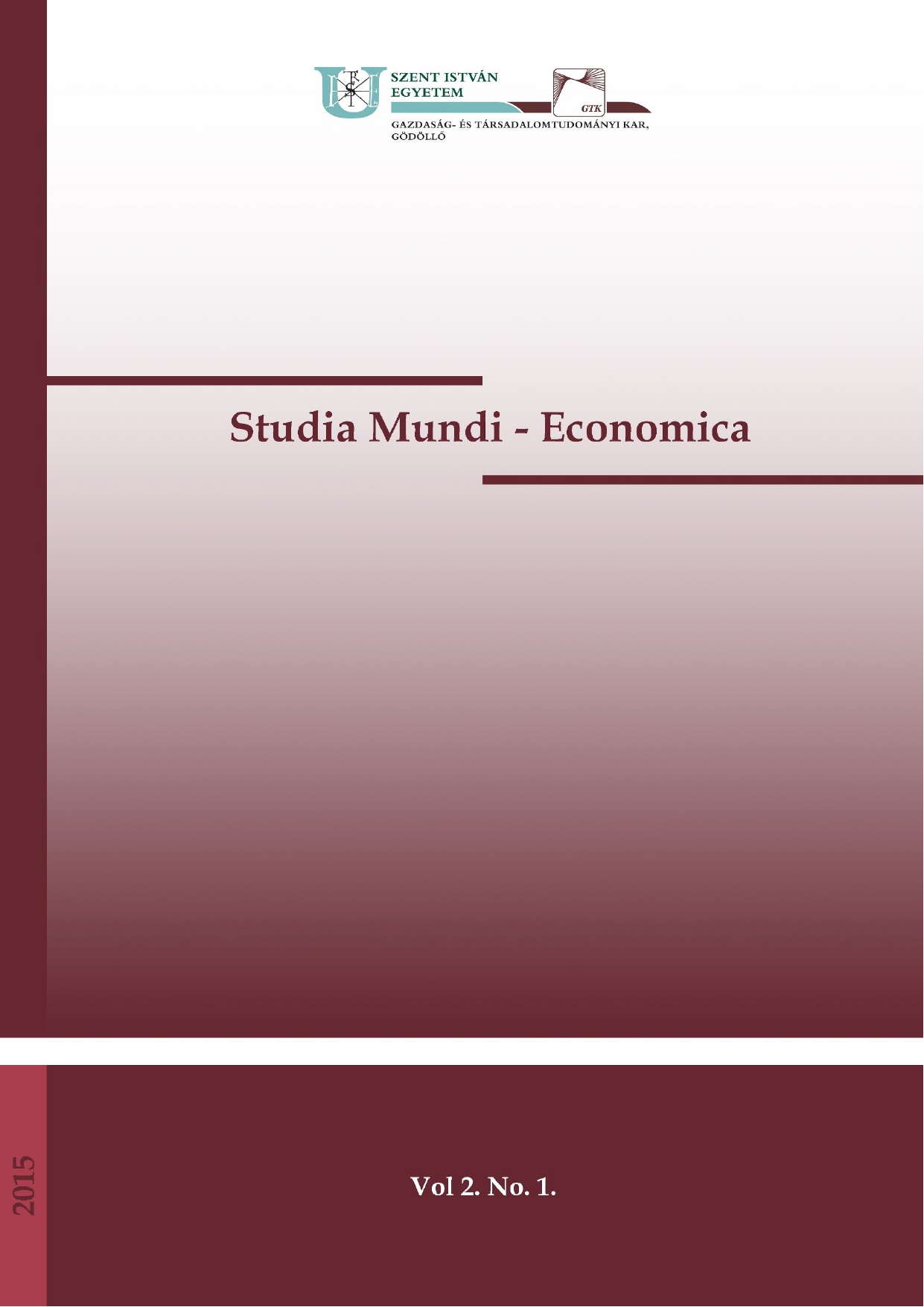The impact of malaria disease on productivity of rural farmers in Osun state, Nigeria
DOI:
https://doi.org/10.18531/Studia.Mundi.2015.02.01.85-93Kulcsszavak:
Malaria, Productivity, Rural, Farmers, NigeriaAbsztrakt
In developing countries, the impact of malaria on human health, productivity and human development is well profound. It possesses serious challenge to the survival of several vulnerable poor, whose livelihood depends solely on agriculture. This study was carried out to examine the impact of malaria on the productivity of arable crop farmers and further estimate the cost implication of malaria (direct and Indirect) in rural Nigeria. Data were collected from a random sample of 91 crop farmers through the use of a well- structured questionnaire. The data were analyzed using descriptive statistics and multiple linear regression. The mean age of the crop farmers was 48 years with only 87.9% percent headed by males. The household heads are largely had primary education. Specifically malaria prevalence, household size, farming experience and cost of malaria treatment were significant factors that influenced crop productivity in the study area. It recommended that public enlightenment under the aegis of the “Roll Back Malaria Campaign” should be intensified and treated mosquito bed nets should be provided at subsidized rates to arable crop farmers. Farmers on their part should keep clean environment. Due regard should be given to environmental sanitation in the rural farming communities in the state.
Hivatkozások
Ajani, O.I.Y and W.M. Ashagidigbi (2008) Effect of Malaria on Rural Households’ Farm Income in Oyo State. Nigeria. African Journal of Biomedical Research, Vol. 11 (2008); 259 – 265 ISSN 1119 – 5096 © Ibadan Biomedical Communications Group DOI: http://dx.doi.org/10.4314/ajbr.v11i3.50723
Alaba, O.A. and Alaba, O. B. (2010). “Malaria in Children; Implications for the productivity of female caregivers in Nigeria”. Proceeding of Annual Conference of the Nigerian Economic Society (NES), pp 395-413.
Coluzzi. M. (1999): “The Clay feet of the malaria giant and its African roots: hypotheses and inferences about origin, spread and control of plasmodium falciparum”. Parasitologia. 41: 277-283.
Eyo, E.O., Ele, I. E. Eyo, O.I. (2006): Occupational Health Problems, cited in Ogana M. U. (2010): Effect of Malaria attack on income and productivity loss among Artisanal Fisher-folk in Lake Ona.
FAO (Food and Agriculture Organization of the United Nations) (2010). “Towards Sustainable Food Security. FAO Report on Women and Sustainable Food Security in Nigeria.
Google Earth (2015). Available at https://www.google.com/earth/. Retrieved on March 30, 2015.
Kwadwo Asenso-Okyere, Felix A. Asante, Jifar Tarekegn, and Kwaw S. Andam (2011). “Addressing the link between Agriculture, Malaria and Development in Nigeria” Conference paper for Levering Agriculture for improving nutrition and health. Pg 16.
Mills, A. (1998): Operational Research on the Economics of Insecticide Treated mosquito nets: Lesson of Experience. Annals of Tropical Medicine and Parasitology 92(4).
Neszmélyi, Gy. (2014.): The Motivations for the Diversification of the Nigerian Economy Focusing on Sustainable Agriculture. Applied Studies in Agribusiness And Commerce. HU-ISSN 1789-221X - Electronic Version: ISSN 1789-7874. Vol. 8. Number 1of 2014. 5-11 p
Oluwatayo I. B. (2014) Socioeconomic Burden of Malaria on Productivity of Rice Farmers in Rural Southwest, Nigeria Mediterranean Journal of Social Sciences MCSER Publishing, Rome-Italy Vol 5 No 15 July 2014 DOI: http://dx.doi.org/10.5901/mjss.2014.v5n15p175
Sachs J and P. Malaney (2010). The Economic and Social Burden of Malaria. Insight Review Articles. Center for International Development, John F. Kennedy School of Government, Harvard University.
Todaro, M. P. (2000). Economic Development, 7th ed. New York: Addison-Wesley Longman.
World Health Organization (2010). “Economic Costs of Malaria.” 2001–2010 United Nations Decade to Roll Back Malaria. Accessed December 2, 2014 http://rbm.who.int/cmc_upload/0/000/015/363/RBMInfosheet_10.htm.
World Health Organization (2011): Malaria Desk Situation Analysis—Nigeria. WHO World Malaria Report 2005.120p
Letöltések
Megjelent
Folyóirat szám
Rovat
License
Copyright (c) 2015 Ogunniyi Adebayo, Kehinde Olagunju, Adewuyi S. A

This work is licensed under a Creative Commons Attribution-NonCommercial-NoDerivatives 4.0 International License.
A folyóirat Open Access (Gold). Cikkeire a Creative Commons 4.0 standard licenc alábbi típusa vonatkozik: CC-BY-NC-ND-4.0. Ennek értelmében a mű szabadon másolható, terjeszthető, bemutatható és előadható, azonban nem használható fel kereskedelmi célokra (NC), továbbá nem módosítható és nem készíthető belőle átdolgozás, származékos mű (ND). A licenc alapján a szerző vagy a jogosult által meghatározott módon fel kell tüntetni a szerző nevét és a szerzői mű címét (BY).






